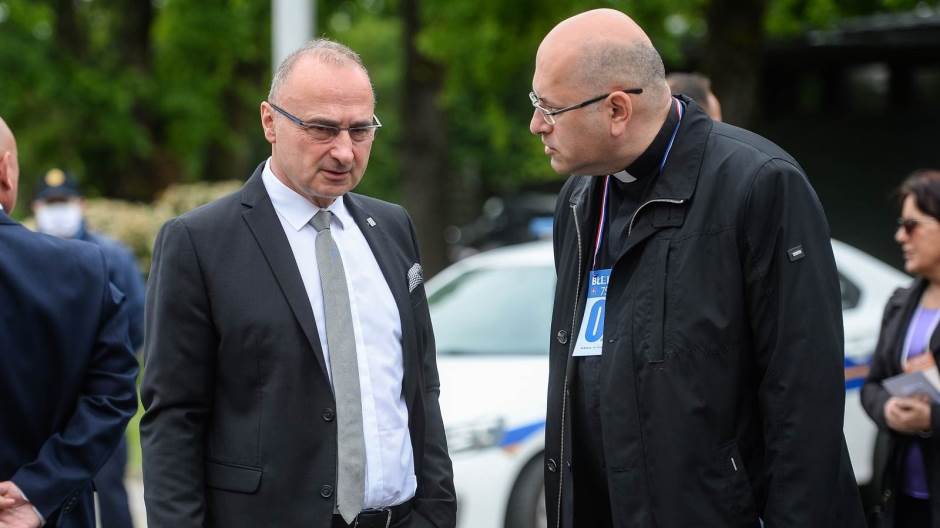Croatian FM calls CoE Commissioner's statement on Bleiburg mass 'unacceptable'

Croatia thinks that the statement by the Council of Europe Commissioner for Human Rights about the memorial service for the Bleiburg victims in Sarajevo possibly turning into a glorification of the Ustasha regime is unacceptable, Foreign Minister Gordan Grlic-Radman said on Saturday, announcing a protest note.
The mass was served in the Sarajevo Cathedral on Saturday for people killed at Bleiburg in the aftermath of World War II as the central commemoration could not be held this year in that Austrian town due to the coronavirus pandemic.
Commissioner Dunja Mijatovic said on Friday that the mass in Sarajevo could turn into a glorification of the Ustasha regime responsible for the deaths of hundreds of thousands of people.
"We have expected just the opposite because she is the Commissioner for Human Rights. This is about remembering persecution, murders, crimes, about serving a mass in Sarajevo to commemorate all victims of the communist regime, killed in the aftermath of World War II, when mass executions and crimes were committed without proof of guilt," Grlic-Radman told the press at Zagreb's Mirogoj Cemetery, where the 75th anniversary of the Bleiburg tragedy and the subsequent death marches was commemorated.
"Therefore, this statement is not appropriate to a person who represents that function, because the Council of Europe is a respectable organisation whose most important task is to protect and fight for human rights, rule of law and democracy," the minister said.
He announced that Croatia would deliver a protest note to Commissioner Mijatovic.
"Our response will be a protest note... to be delivered by our Ambassador at the Permanent Representation of Croatia to the EU, who has already requested permission to hand in to Dunja Mijatovic our protest note in which we express our disagreement and dissatisfaction," Grlic-Radman said.
In the note, Croatia refers to the 1948 UN Universal Declaration of Human Rights and the Council of Europe declaration which condemns all totalitarian and communist regimes, the minister explained.
Mijatovic stated that the mass, planned to be celebrated in Sarajevo with the intention to commemorate soldiers and civilians who died at Bleiburg, risks to become a celebration of all those who supported the Ustasha regime which collaborated with the Nazis and was an accomplice to the death of hundreds of thousands of people.
The announced mass has caused heated debates in Bosnia and Herzegovina, with the Roman Catholic Church insisting that the mass is a prayer for the souls of the deceased while numerous state officials, including all three members of the state presidency, political parties and non-governmental organisations have said that holding a mass as part of the Bleiburg commemoration is an attempt to rehabilitate the WWII Ustasha regime that was responsible for the murder of more than 10,000 Sarajevans during the fascist occupation of the city.
Grlic-Radman said that the mass in Sarajevo had been served in previous years as well, and that the only difference was that this year it had become the central event as the main commemoration in Bleiburg could not be held.
The mass is to be served by Sarajevo Archbishop Vinko Puljic, who is the light and a symbol of coexistence, cooperation, and tolerance, said Grlic-Radman.
"Serving a mass is a spiritual act and it should not create such unnecessary tensions. It is a mass for all victims," said the minister, adding that he believed the event would go smoothly.
Kakvo je tvoje mišljenje o ovome?
Učestvuj u diskusiji ili pročitaj komentare





 Srbija
Srbija
 Hrvatska
Hrvatska
 Slovenija
Slovenija







